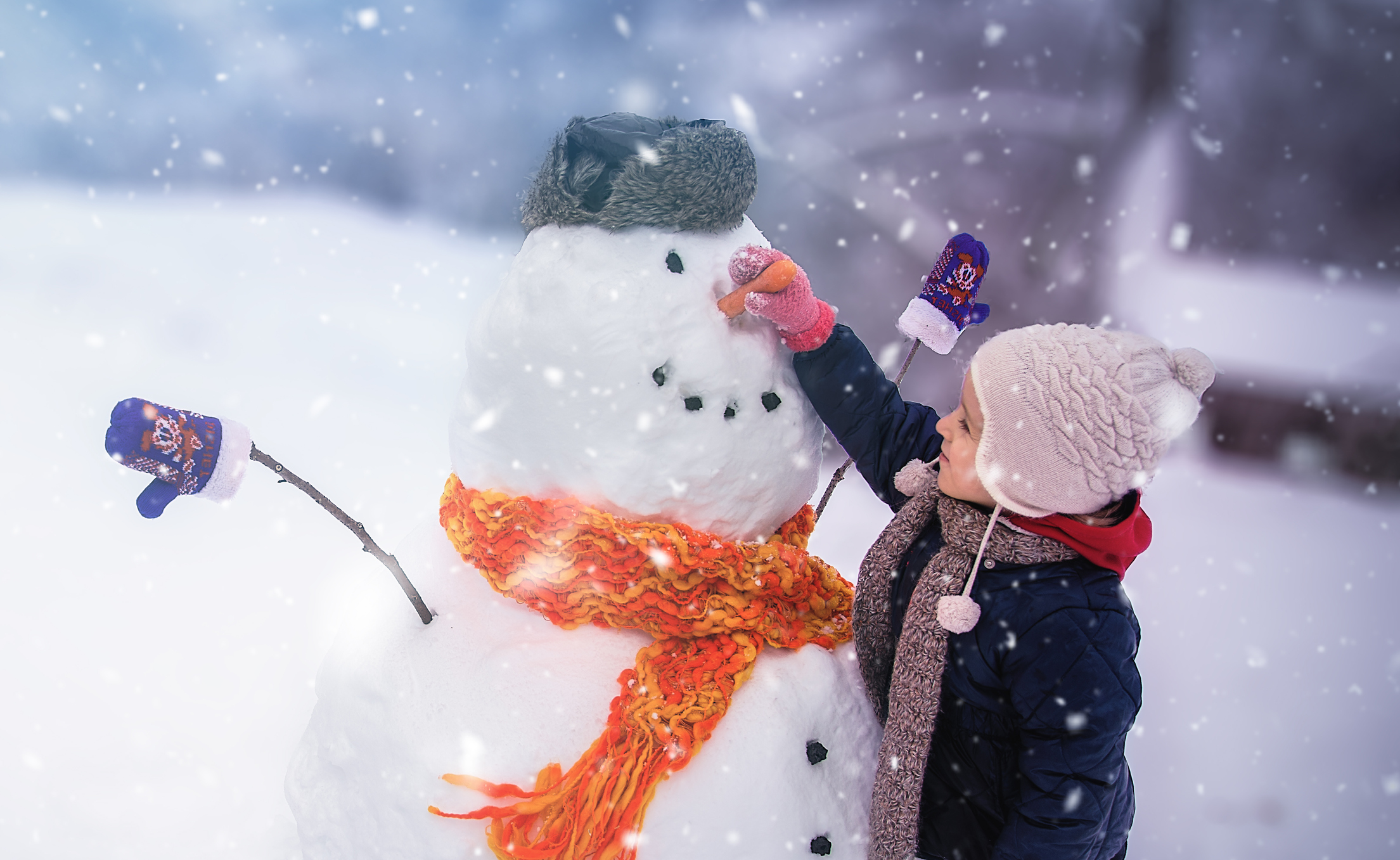- 877.861.5078
- Schedule a Tour

How many times have you told your kids it’s too cold to go outside, or too wet, or too hot? We have probably all said it. Or, “You’re going to catch a cold if you don’t put on your coat and hat.”
That’s why some parents have tucked away in a closet or drawer, a list of crafts and indoor games labeled “Rainy Day Fun.” Some education experts believe you should include playing outside on that list of activities. While we keep our children inside on days that we deem too cold or rainy to keep them from getting sick, it is actually unhealthy for them to be cooped up inside all winter.
While viruses that cause colds and flu, as well as the more dangerous COVID-19, proliferate in the winter months, medical professionals have found no causal connection between going outside in cold weather and catching a virus. Children tend to get sick more often in the winter months because they generally stay inside and are more easily exposed to these viruses. There is also evidence that a virus circulates more easily in dry air. Inside air tends to be drier when it is cold outside, and people tend to “turn up the heat” which dries out the air even further. This makes it easier for germs to pass between people.
The most important thing to remember is to protect your child from viruses by encouraging them to wash their hands often and avoid people who are sick. If your child does become ill, remember how important it is to keep them home from school so they have time to heal and do not spread their germs.
There are many real benefits to allowing your children to go outside whatever the weather.
- Exercise: In the winter, children can be outside to run around, go sledding, or build a snowman. All of these activities get children moving and get their hearts pumping. It is also important for your child to get Vitamin D, which is provided by the sun. With even just 10 to 15 minutes a day, Vitamin D can help promote energy levels, memory, better moods, and more.
- Imagination: Children’s imaginations need exercising, too! In today’s world, instead of playing outside, watching television is the default when there is “nothing to do.” However, it is outdoor play that can help children develop their imaginations. Many outdoor activities also promote problem-solving skills and cooperation. If they are learning how to get along with others or trying to figure out the best way to assemble a snowman, they are involved in problem-solving.
- Health: By letting children play outside in dirt or in cold weather, you’re helping them build their immune system. Health experts now say the more children are exposed to bacteria on a regular basis, the less likely they are to develop allergies. There are many safety tips for outdoor play during winter so you can be sure your child gets the most out of their outdoor time, such as:
- Dress children in multiple loose layers so they stay dry and warm. It’s a good idea to dress children in one more layer of clothing than an adult would wear in the same conditions.
- Set time limits and have children come inside periodically to warm up.
- Watch for common signs of frostbite and hypothermia.
For more information, check out the following article from the National Wildlife Federation.
https://www.nwf.org/pdf/Be%20Out%20There/BOT_WeatherReport_3d_forWeb2.pdf
